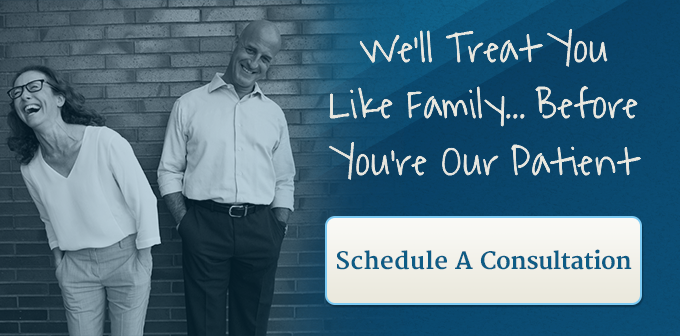Tummy tuck surgery is one of our specialties at our practice here in Bergen County. Past patients tend to refer others due to the unprecedented emphasis that we place on a successful tummy tuck recovery.
It is easy for some patients, and surgeons as well, to fall into the mindset that it’s all over once you are wheeled out of surgery.
However, that is not the case.
Our patients have an enormous amount of control during the crucial recovery period and they can count on the utmost support from us as their surgeons.
Our patients typically achieve an excellent result following a minimal recovery period. That does not mean that recovery happens in a week or that it is free of discomfort. What it does mean is that at Cohen/Winters, we perform the right tummy tuck on the right patient, because each tummy tuck is personalized and unique. And we always keep a stress-free recovery and stellar result in mind with everything we do.
Focusing on Tummy Tuck Recovery in Northern NJ
Recovery is generally quite smooth for our patients because we do our absolute best when planning and carrying out the surgery to limit any trauma to the abdominal area.
How closely a patient follows the pre-surgery instructions is also key leading up to the tummy tuck procedure. (You will have been instructed to avoid certain supplements, not to smoke and other things.) Now comes an important period when your actions can make a big difference: your recovery.
Tummy Tuck Post-Surgery Instructions and Support
You will be given your recovery instructions prior to your surgery. We also like to go over the instructions with your support person who will be driving you home and staying with you for the first few days after surgery.
Be sure to ask questions if you need clarification when we are discussing post-surgery procedures – questions always help enhance the experience and make everyone feel more comfortable. We believe that open communication is partly responsible for our patient’s high satisfaction rates and our long history of successful tummy tuck results.
Here is an outline of what you can expect during your tummy tuck recovery period.
Typical Tummy Tuck Recovery: Time Off
You should plan on taking at least two weeks off from work. We may recommend three or four weeks during our initial consultation once we take a look at your specific case. Some people heal more quickly than others and the time needed will also be affected by your physical condition and how much skin and fat were removed.
If you are having an additional procedure, liposuction of the love handles or breast surgery, for example, there will be more recovery time needed.
Time off from work also means that you’re off from normal duties around the house, with the kids and socially. You must have support around the clock for the first 2 days after surgery. Someone must help you with any lifting, dressing, and ideally, with showering once you are given the ‘ok’ to do so by your surgeon.
This goes for Bergen County men and women post-tummy tuck. Even those who may think they can tough it out or are reluctant to ask for help. It is critical for your safety.
Expectations Immediately After Tummy Tuck Surgery
- When you wake up after surgery, your friend or loved one will be there to take you home. You will be wheeled to the car and assisted.
- Alternatively, you might stay at a local surgery center hotel with a private duty nurse or the hospital depending on your individual case. However, nearly all of our tummy tuck patients go home.
Recovering at Home After a Tummy Tuck
- You will go home with bandages over your incisions above the pubic area and at the navel. (The navel incision will not be present after a limited tummy tuck.) You will also have small suction drains, which are small tubes with a bulb at the end to collect excess fluids. A compression garment or binder will hold everything in place.
- Your friend will stay with you during your groggy period of the first 24 to 48 hours after surgery, when you may also have some nausea. You will be on pain medication, which can cause some dizziness and clumsiness. This is why you cannot be alone or go roaming around your house on your own. You should have help to care for small children the first week.
- Walking around your Northern NJ house more and more each day is recommended, starting from day one. (Remember you need assistance for the first 2 days.) You will be slightly stooped over and your skin will feel tight for about 5 days or so. This is normal because your skin has not adjusted to its new re-draped position, your muscles may have been recently repaired, and there is significant swelling. Your mild activity will enhance circulation, limit postoperative complications and can expedite recovery, which will make you feel better, sooner.
- You will go from groggy to somewhat uncomfortable. There will be some soreness and twinges when you use your abs, to sit up in bed or stand, for example. You will need to sleep with your torso slightly elevated. Most patients will have muscle spasms during the first few days after surgery and will tire easily as well. After a few days, you will switch to acetaminophen when you no longer feel the need for your prescription pain medication.
- You will have a follow-up appointment with your surgeon within a week after surgery. We are always available should you need to be seen sooner than that.
- Stitches will be removed after about one week, and a drain may be removed at this time or at the next visit. The average patient may have follow-ups at one week, two weeks, one month, three months and six months. Again the schedule is individualized–you will get a more specific schedule before your surgery based on your unique case. In reality, the schedule may vary a bit as we actually go through your recovery together. Your surgeon will let you know at each visit when the next appointment should be. You are welcome and encouraged to call between visits whenever you need to.
Tummy Tuck Recovery: Week Two and Beyond
- You may experience mood swings during your tummy tuck recovery period, from depression to elation. Lean on your caregivers and call your Northern NJ surgeon if the depressive mood persists. Always keep the end result in mind—because once fully recovered, almost all patients are happy with their results and feel that the experience was worth it. As to the elated mood, be sure you don’t overdo it and resume strenuous activities before you are cleared to do so.
- You will continue wearing a compression garment around the surgery area for support for 3 to 6 weeks. The garment will help to control swelling and allow your abdominal tissues to settle into their new contours. You may be instructed to wear compression stockings for a short time after your tummy tuck to improve circulation and help prevent blood clots.
- Post-surgical swelling and bruising will subside gradually over the next few weeks. A small amount of swelling and loss of sensation in the abdominal area may persist for a few months. Minor discomfort “twinges” or odd sensations may come and go, becoming less and less frequent.
- Wait at least 6 weeks, and get your tummy tuck specialist’s ‘ok,’ before resuming strenuous exercise.
- Your final, healed results and new look may take 3 to 6 months to fully come into place.
Patience and Communication: The Keys to Successful Tummy Tuck Recovery
You can expect terrific results from your tummy tuck if you stick to the recovery plan and reach out to your surgeon with any questions or concerns immediately. This sounds easy and it can be, but many patients have the temptation to rush results. You need to suppress this urge throughout your tummy tuck recovery and stick to the schedule, which will be tailored to your situation.
About patience: A good recovery can’t (and doesn’t need to be) rushed. It does require patience—even though you will become more and more excited as days go by to go out into the world (and even back to work in your NJ office) to enjoy your results.
Always wait for your surgeon’s ‘ok’ to move through your recovery phases. Rest assured, your surgeon can’t wait to see your final results either—and he or she wants you to return to your normal schedule as soon as possible.
About communication: Between follow-up visits, you must contact your surgeon or our wonderful nurse Lauren with any questions. If you’re ever worried about a particular symptom, call them.
You will be given, in your post-surgery instructions, things to watch for during tummy tuck recovery: like fever or unusual bleeding. But even if something minor bothers you that isn’t on your list to watch out for—call anyway.
Stress can interfere with healing, so rest assured that your surgeon wants you to call.
Preventing Complications from Abdominoplasty
As with any surgical procedure and general anesthesia, there are risks associated with a tummy tuck. Complications are rare but include excessive bleeding, infection and blood clots. All risks, in addition to any specific to your case, will be discussed in detail at your consultation with your Northern NJ tummy tuck surgeon.
Any risk is significantly minimized with advanced surgical skill, expert care and frequent, and clear communication between patient and surgeon during the tummy tuck recovery period.
Recovery instructions, such as walking to increase circulation and wearing the compression garment, are also designed to lower any complication risks. Tummy tucks at our Bergen County practice typically produce the desired result and leave our patients very satisfied.
When you are ready to learn whether a tummy tuck might help you to attain your goals for a better body, we are happy to provide a consultation at no charge. At that time, we can determine if you are a good candidate for abdominoplasty and provide individualized answers to your tummy tuck recovery questions.


